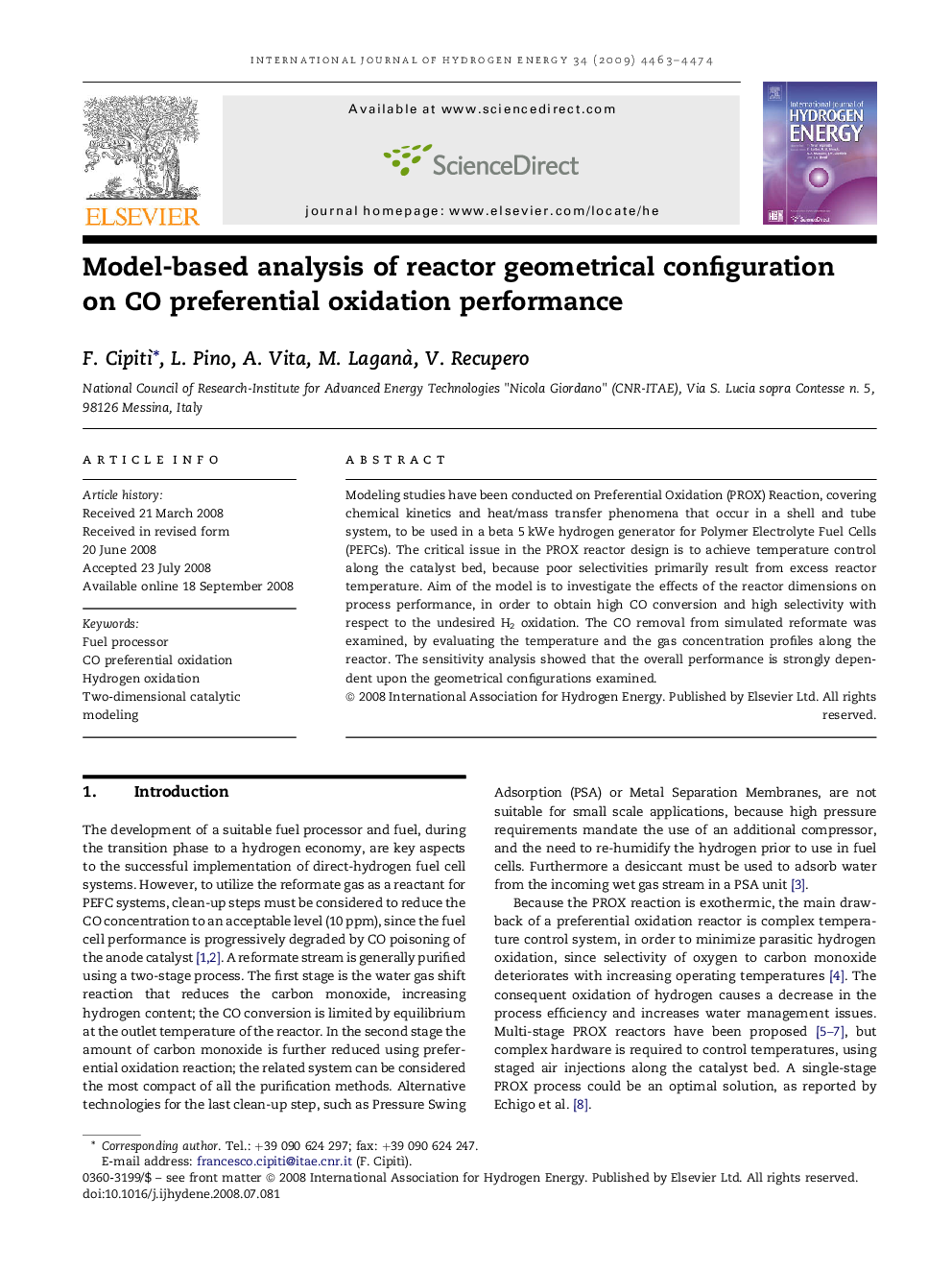| Article ID | Journal | Published Year | Pages | File Type |
|---|---|---|---|---|
| 1273857 | International Journal of Hydrogen Energy | 2009 | 12 Pages |
Abstract
Modeling studies have been conducted on Preferential Oxidation (PROX) Reaction, covering chemical kinetics and heat/mass transfer phenomena that occur in a shell and tube system, to be used in a beta 5Â kWe hydrogen generator for Polymer Electrolyte Fuel Cells (PEFCs). The critical issue in the PROX reactor design is to achieve temperature control along the catalyst bed, because poor selectivities primarily result from excess reactor temperature. Aim of the model is to investigate the effects of the reactor dimensions on process performance, in order to obtain high CO conversion and high selectivity with respect to the undesired H2 oxidation. The CO removal from simulated reformate was examined, by evaluating the temperature and the gas concentration profiles along the reactor. The sensitivity analysis showed that the overall performance is strongly dependent upon the geometrical configurations examined.
Related Topics
Physical Sciences and Engineering
Chemistry
Electrochemistry
Authors
F. Cipitì, L. Pino, A. Vita, M. Laganà , V. Recupero,
